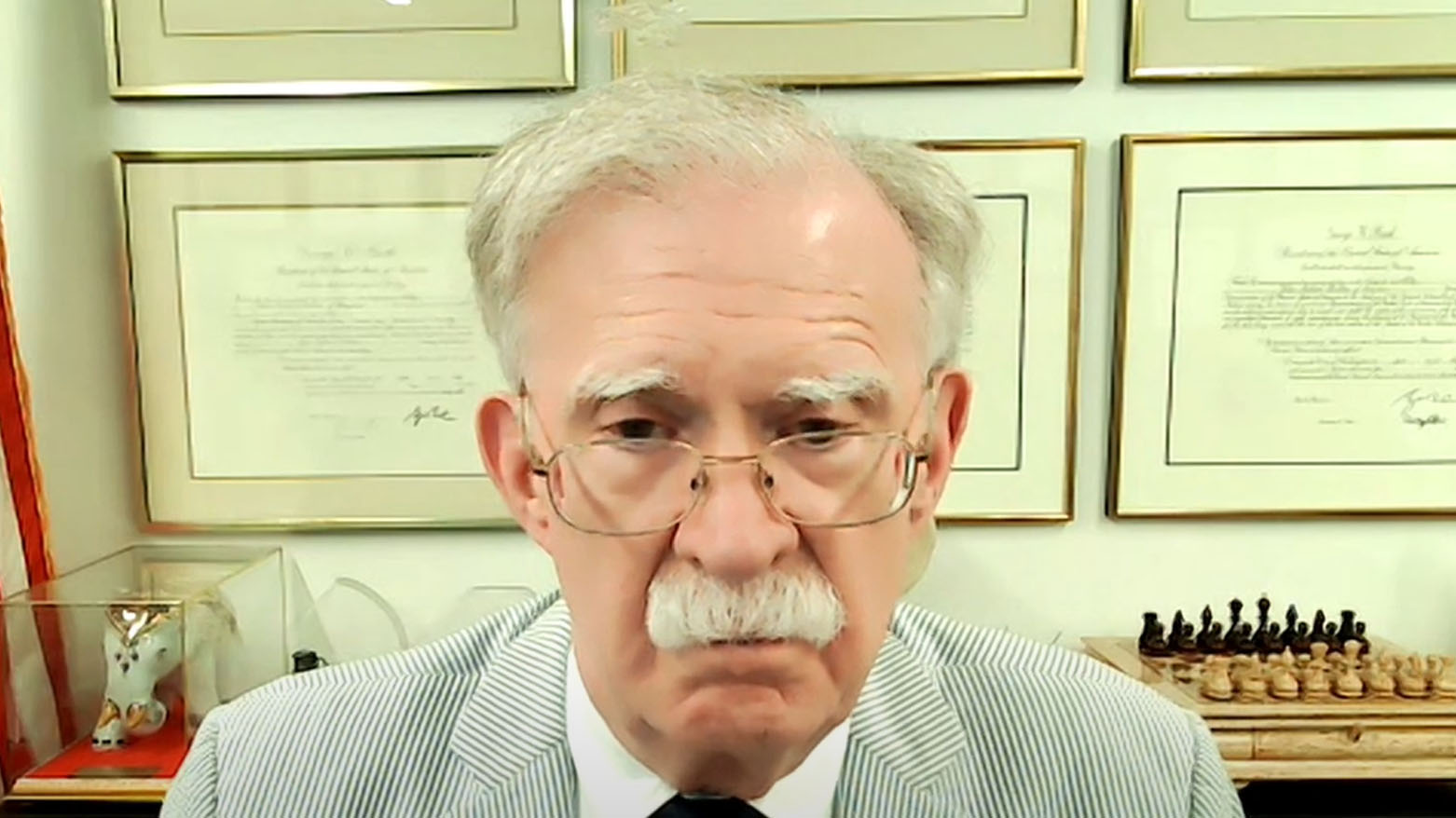John Bolton Warns Against US Withdrawal from Iraq and Syria
He warned that any perception of U.S. withdrawal or reduced commitment could embolden hostile actors.

ERBIL (Kurdistan 24) – In an exclusive interview with Kurdistan24 on Tuesday, former U.S. National Security Advisor John Bolton warned of the growing threat posed by Iran-backed Shiite militias targeting the Kurdistan Region and called for a firmer U.S. response.
Commenting on recent drone attacks in the Kurdistan Region, Bolton said they appear to be launched by Iran-backed groups, and possibly even by the Iraqi government itself. “That’s almost the same thing in some respects,” he noted, adding, “It’s obviously unacceptable and shows the continuing danger to the Kurdistan Region and others in the region as long as the Ayatollahs are still in charge in Tehran.”
Bolton emphasized the importance of close cooperation between Washington and the Kurdistan Regional Government (KRG) in addressing these threats. “We should consult with the Kurdistan Government to see what they believe they can do and what help they may need,” he stated.
He warned that any perception of U.S. withdrawal or reduced commitment could embolden hostile actors. “This is not the time for the U.S. to withdraw or reduce its role in the region—especially with respect to the Kurdish people, who have done so much to fight terrorism over the past decades.”
Bolton criticized the Biden administration for what he described as a weak response to repeated attacks by militias in Iraq. “I would have responded to these militia group attacks even before the Hamas attack of October 7,” he said. “If U.S. personnel or investments are put at risk in the Kurdistan Region, it should prompt a strong U.S. response.”
While acknowledging that the U.S. has acted against Iran’s nuclear program, Bolton argued that the threat from Iran’s regional proxies requires equal attention. “Dealing with the Shia militia threat seems less risky and just as important,” he said. “Whether the orders come from Tehran or not shouldn’t matter. These groups have been trained and equipped by Iran to serve its broader strategy—the so-called ‘ring of fire’ against Israel, the U.S., and its allies, including Kurdistan.”
Comparing the current threat from militias to the battle against ISIS, Bolton said both constitute terrorist threats that require military responses. “This is no different than fighting ISIS. Unless these drone attacks are met with strong U.S. and Kurdish responses, the militias will believe they’ve intimidated the U.S. and its partners.”
He also pointed to wider regional instability, citing continued hostilities involving the Houthis, Hamas, Hezbollah, and developments in Lebanon and Syria. “Unfortunately, we still don’t see peace in the region,” he said, warning that militia activity in Iraq and the Kurdistan Region is likely to escalate unless deterred.
Bolton stressed that Iran remains the primary source of instability in the Middle East. “The principal threat to international peace and security is the regime in Iran. The militia attacks are part of that.”
Turning to northeastern Syria (Rojava), Bolton warned against any premature U.S. withdrawal from the area, where the Syrian Democratic Forces (SDF) continue to hold thousands of ISIS prisoners. “If the U.S. tolerates militia behavior in Iraq, ISIS could see that as a signal it’s safe to reemerge,” he cautioned.
He also voiced concern over potential U.S. engagement with the Hayat Tahrir al-Sham (HTS) government in Syria, calling it “an offshoot of al-Qaeda” and warning against trusting its recent claims of moderation. “If I were the SDF, I’d be very cautious in dealing with the HTS government.”
Bolton rejected Turkish President Erdogan’s reported suggestions that Turkey could take control of northeastern Syria if the U.S. withdraws. “We’ve been down that road before. It would be a mistake. The U.S. presence in Iraq and northeastern Syria is a stabilizing force.”
In conclusion, Bolton reiterated that the U.S. must not back down in the face of growing threats. “The Iraqi government is under enormous pressure from Iran. But this is not the time to throw Tehran a lifeline. This is the time to stand up to terrorists—whatever form they take.”
